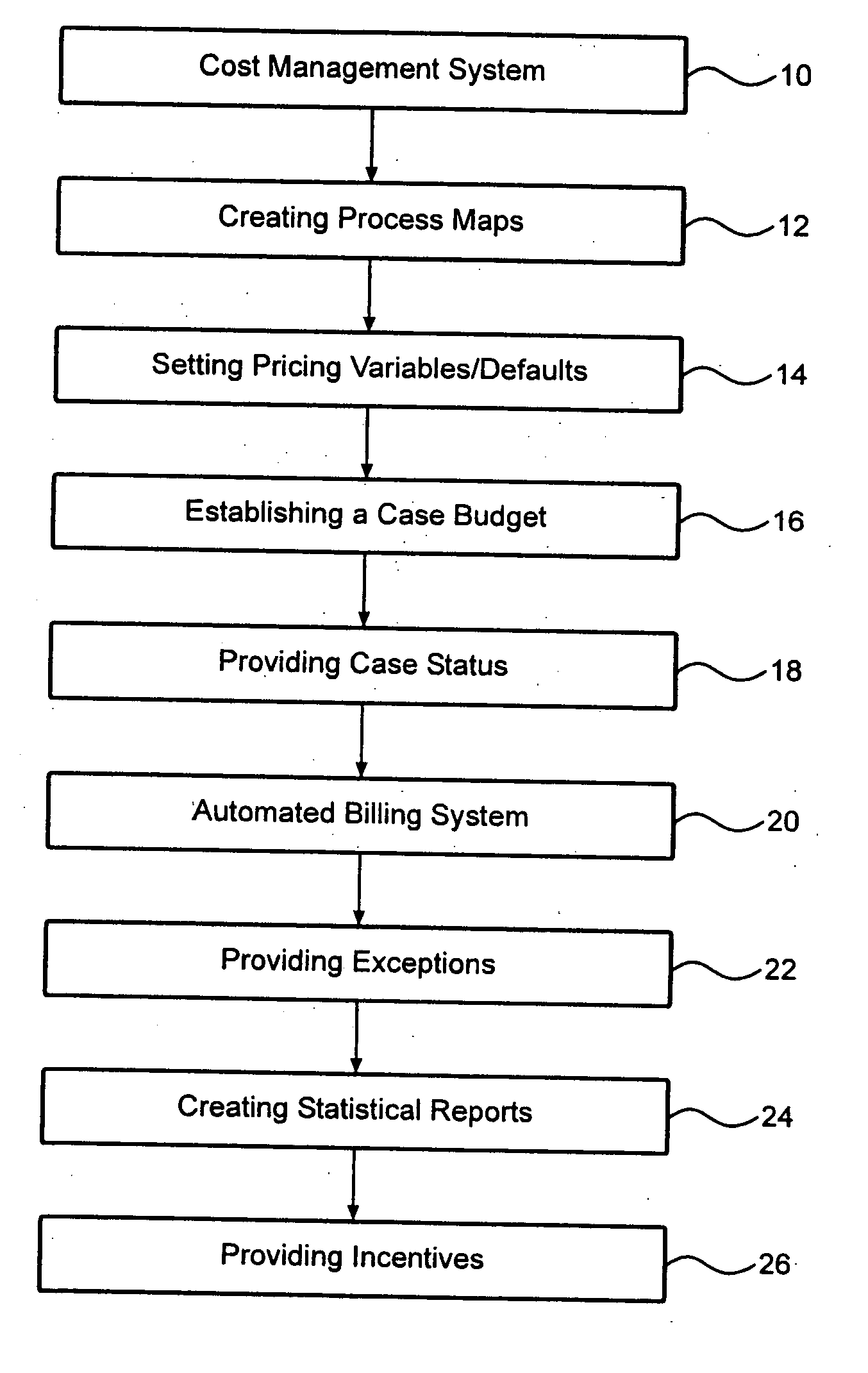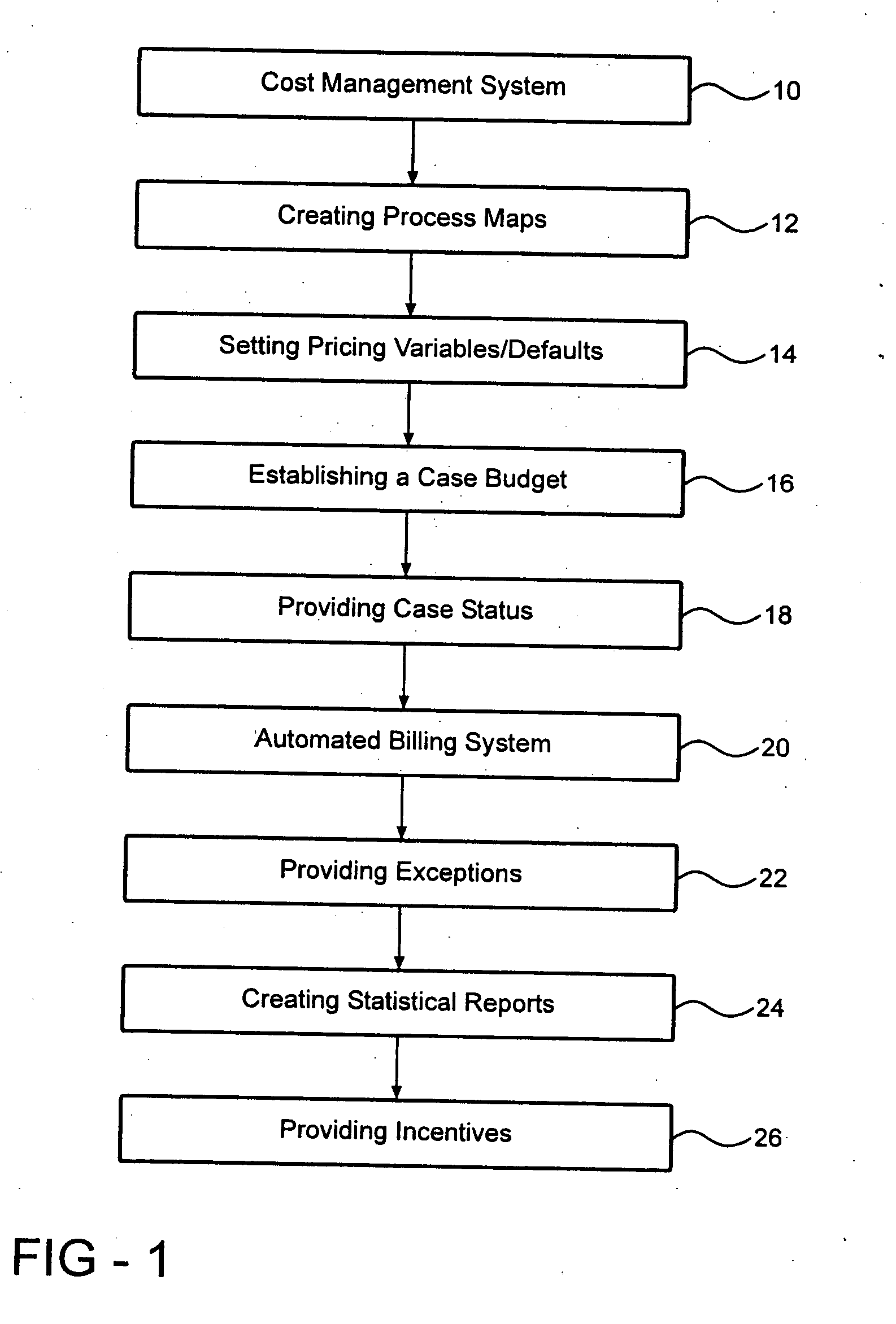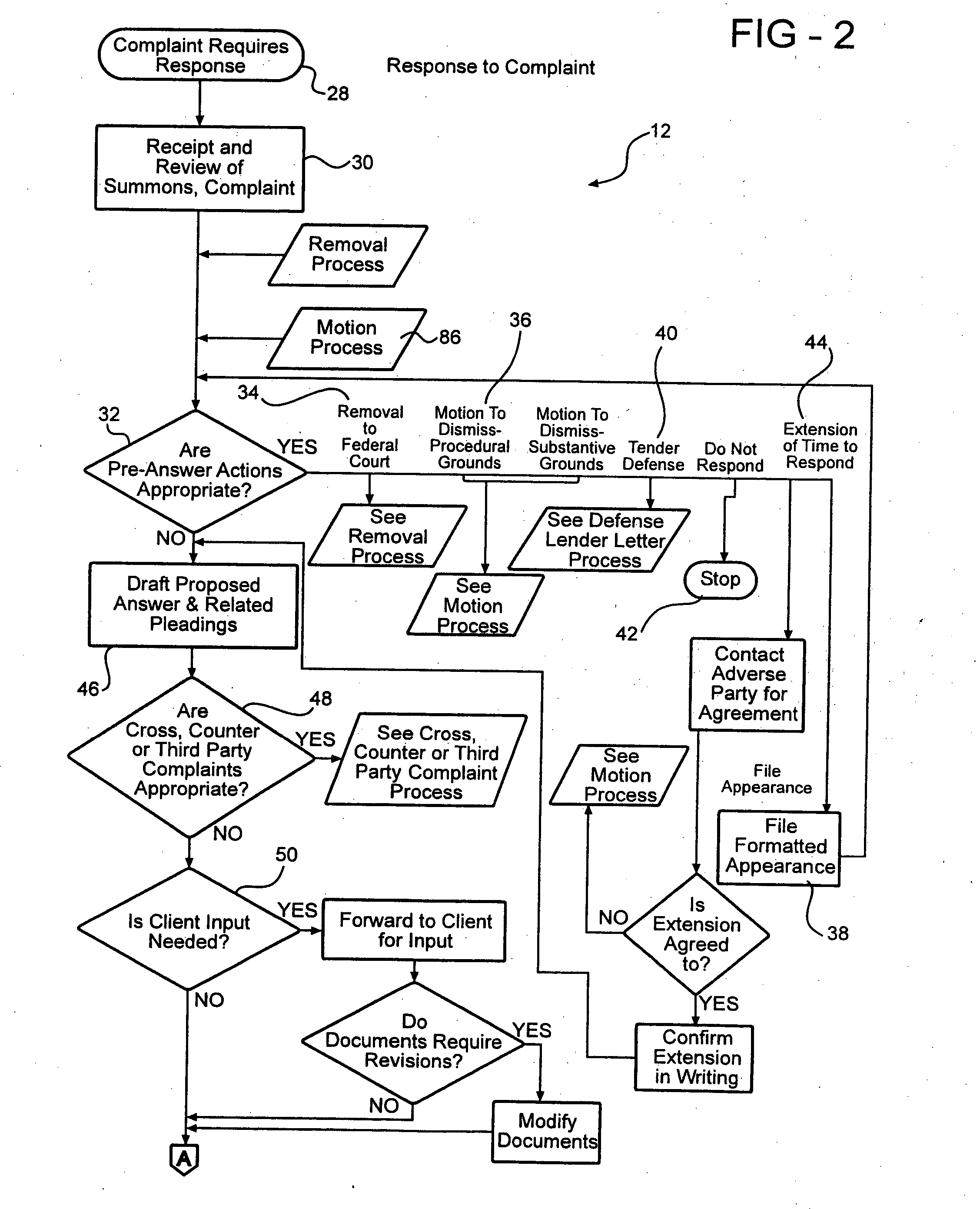[0010] If a firm's accounting department finds a problem, the
invoice goes back to the billing attorney for correction and then goes through the
system one more time. However, if the
invoice passes scrutiny the first time, and is electronically sent, or is placed in an envelope, postage is applied to the envelope, and it is sealed and then forwarded to corporate counsel whose company receives it in a few days. Once the company receives the
invoice, it goes to their accounting department to be logged in to the
system. Thereafter, the invoice is forwarded to the corporate attorney that is in charge of that particular case, for review, critique, approval or disapproval. This requires corporate counsel to
set aside the time for this step, which slows down the collection process. If the invoice does not comply with corporate counsel's billing standards, or otherwise is not acceptable, then the invoice could be rejected and possibly returned to the billing attorney for correction. Worse yet, the invoice could be put in the ‘to deal with later’
pile and it may sit for a lengthy period before being resolved. For the firm, this
delay reduces cash flow, minimizes realization on the account and the entire process increases the cost of doing business for both in-house counsel and outside counsel.
[0014] It would also be desirable to provide a litigation
cost control management system that is much more than just a
billing system, but instead an efficient
cost control device that removes waste in the litigation process, surprises to the
client, yet yields high quality legal services at predictable costs. The system allows the
client to have complete control over the litigation process. The present invention accomplishes this objective through implementing cost containment and control, by accurately and continuously updating the case activity and the litigation budget through real time communications between inside counsel and outside counsel.
[0015] Another embodiment of the present invention provides a cost management system that allows for exceptions to be made during the case that can be immediately approved and added to the
billing system with ease. Cost based
decision making allows for continuous updates and allows corporate counsel to know at any given time, the cost, and status of the litigation without ever needing to pick up the phone and contact outside counsel. One aspect of the invention allows costs to be captured when the work is done, thus allowing the billing partner or other appropriate firm personnel to point and click in order to electronically invoice the client at any time. Thus, there is no need for the law firm or corporate counsel to review the invoice because the work has been previously approved.
[0016] Another embodiment of the present invention eliminates the need for corporate counsel to approve items on invoices, eliminates any up-time charges, eliminates any re-work, eliminates over billing and payments for any of the inefficiencies as a result of the firm. This is accomplished by utilizing litigation process maps that allow for task value pricing at the outset of the case in order to establish a budget.
[0017] One of the embodiments of the present invention provides a point and click invoicing system that automatically sends a current invoice to general counsel's accounting department. It would be desirable to immediately transfer the required funds from the corporation to the firm's
bank account, thus eliminating several days of delays and effort. The present invention accomplishes this task because the work performed has been previously approved at the amount agreed upon, and thus, the standard inefficiencies in the system are removed.
[0018] Another embodiment of the present invention provides a cost based
decision making litigation
process management system that allows for capturing immediate application of the best practices of all law firms that are within the system. Yet another embodiment of the present invention allows inside counsel to be able to award bonuses to a firm that does exceptional work by allowing corporate counsel to add a variance to the predetermined budget.
 Login to View More
Login to View More  Login to View More
Login to View More 


